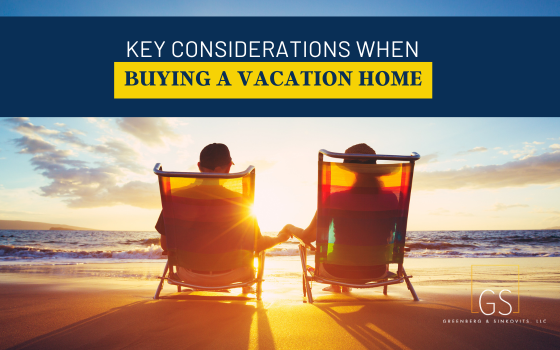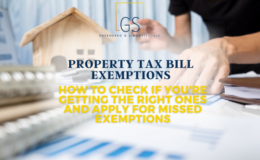Summer is basically here and with it comes the desire to get away on a vacation! Many people purchase a secondary or vacation home during the summer months. Like any real estate transaction, purchasing a vacation home is a significant financial investment but also a source of great joy. Here are some things to keep in mind when buying a vacation home:
Financial Implications
Buying a vacation home involves various financial considerations:
- Affordability: Assess your budget carefully, considering the purchase price, property taxes, insurance, and ongoing maintenance costs. Ensure that you will be able to afford not just the mortgage but all of the other costs as well.
- Financing Options: Explore different financing options. Mortgage rates for second homes can differ from primary residences (they are typically higher), and you may need a larger down payment.
- Rental Income: If you plan to rent out the property, research potential rental income and occupancy rates. Platforms like Airbnb and VRBO can provide insights into local rental markets. However, keep in mind that many associations or even towns have rules prohibiting Airbnb and VRBO (or sometimes even renting in general). It’s imperative, particularly if buying into an association, to thoroughly review the Declarations, Bylaws, and Rules and Regulations to ensure you can use the property in the way you intend.
Legal and Regulatory Issues
Understanding local laws and regulations is also vital:
- Zoning Laws: Ensure the property is zoned for your intended use, whether it’s personal, rental, or mixed-use.
- Rental Regulations: Familiarize yourself with local short-term rental laws and homeowner association (HOA) rules, which can affect your ability to rent out the property as noted above.
- Tax Implications: Be aware of property tax rates, potential rental income taxes, and how the purchase might impact your overall tax situation. Consult with a tax professional to understand the implications fully.
Insurance Needs
Insurance for a vacation home can be more complex and expensive than for a primary residence:
- Property Insurance: Ensure comprehensive coverage that includes protection against natural disasters common in the area (e.g., floods, hurricanes, earthquakes).
- Liability Insurance: If renting out the property, consider additional liability insurance to cover potential guest injuries or damages. Keep in mind that many associations require a minimum amount of coverage so make sure that you obtain that information from the association.
Future Resale Value
Consider the long-term potential of the property:
- Market Trends: Research the local real estate market trends and future developments that might impact property values.
- Property Condition: Invest in a property that is well-built and maintained to ensure it appreciates over time.
Buying a vacation home can be a rewarding endeavor if approached with thorough research and careful planning. By considering the financial aspects, legal regulations, insurance needs, and potential rental income, you can make an informed decision that aligns with your goals and lifestyle. Whether you seek a personal sanctuary or a profitable investment, understanding these key factors will help you navigate the process successfully.






